Hypothesizing About Bugs
Program Transcript
Jaboneta (Interview): My name is Nadia Jaboneta and I teach the Coyote Class here at Pacific Primary, which is four and five year olds. One thing that personally love about this school is the emerging curriculum, which means that the teachers, you know, observe what the children are working with, what they're interested in, and plan their curriculum based on the children's ideas. So today we talked about bugs. We've been learning about bugs for about two months now. So some of the goals today were revisiting all the things they had noticed so far.
Jaboneta: Okay. I brought you some papers today. And I have a special helper too who's gonna help me. Marin, are you ready?
Jaboneta (Interview): We started off with morning meeting, and having my partner Marin who sat next to me, to share what she had observed and the connection she had made.
Jaboneta: So Marin and I had a meeting yesterday. I said to her, Marin, I've noticed that you've been really interested in bugs. You said, I noticed, that. Do you remember? Do you want to tell everybody?
Student: Bugs like to hide under rocks and bricks.
Jaboneta: Yeah. Marin said, I noticed that bugs like to hide under rocks and bricks. And I said, we should make a chart. That would be fun. So what if we brought it to morning meeting, and we made a big chart that said, what do you notice? And then I asked Marin another question. I said to Marin, well, what js, what does that tell you about about bugs?
Student: 'Cause they like the shade.
Jaboneta: They like the shade.
Jaboneta (Interview): So teaching them what it meant to notice something when they're observing, which we were calling the hypothesis.
Jaboneta: Raise your hand if you've heard of the word hypothesis. Oh, wow. Lots of you. I'm gonna wait for a quiet hand to see if anyone could tell us what it means to have a hypothesis. Let's see. Yes, Corbin.
Student: It means that, hypothesis is an idea that you test.
Jaboneta: It's an idea that you test…
Jaboneta (Interview): The teacher's role is to explore with the children and listen to their questions and not answer them for them.
Jaboneta: Okay. I'm gonna take a few more things the coyotes noticed. Let's see, Addie. What do you think?
Student: Some bugs bite.
Jaboneta: Some bugs bite. Is that something you've noticed? Okay. I can add it. How do you know that? How do you know that some bugs bite?
Student: I holder one bug and it bite me one time.
Jaboneta: You holded one once and it bit you? So what if Sammy said to you, hmmm, I don't know if that's really true? How could you show him? Anyone have any ideas on how Addie can show Sammy her hypothesis? Yes, Ella.
Ella: Um, she can try to hold one, and um, she might, um, might be bitten.
Jaboneta (Interview): So that was setting up the rest of the day, which is going into our small groups and continuing this idea of observing and noticing.
Jaboneta: Okay, are you ready to test our hypothesis?
Students: Yeah!
Jaboneta: Okay…
Jaboneta (Interview): My goal was for the children to reflect on, well, what am I noticing when I'm digging for bugs, when I'm putting them in containers and using my magnifying glass?
Student: Come out snail!
Jaboneta: Escape.
Student: Escape. Escape. He fell off the table.
Jaboneta: Here, Addie. Thank you, Addie…
Jaboneta (Interview): It's them doing it hands-on and figuring out the answer on their own.
Jaboneta: I'm going to read you all the hypotheses that we talked about at morning meeting, and I heard a lot of you talking about them. Some bugs fly and some don't.
Students: Yeah! Yeah!
Jaboneta: That's true? Okay. Some I'm gonna write here, Zooey V's theory is true because, let's see, beetles were not flying. Is that what I heard you say Emmett? The beetles were not flying. Should we try that outside in the garden? Bring the snails back out? Okay let's do it. Let's head over the garden. Don't go in without me! Meet me there!…How do you all feel about just letting a few go so we can observe them and see what they do?
Students: Yeah!
Jaboneta: Yes? Should we do it?
Jaboneta (Interview): The children on their own come explore the materials and make discoveries and have great ideas on where to take it next.
Student: Why are they not flying away?
Jaboneta: That's a great question, Addie. I don't know the answer. Anyone have a hypothesis on why they're not flying away?
Student: 'Cause some of them are got hurt. Or dead.
Jaboneta (Interview): It's the teacher's job to provide these opportunities. So it's a great collaboration.
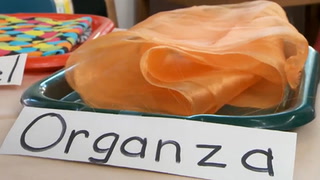
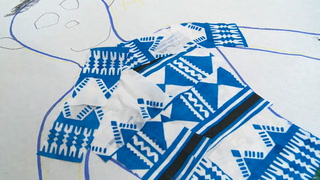

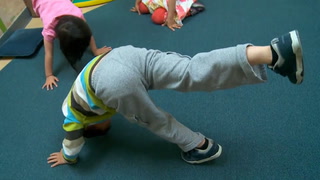
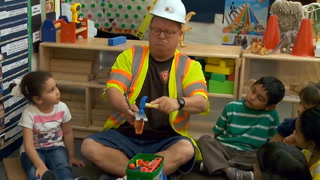
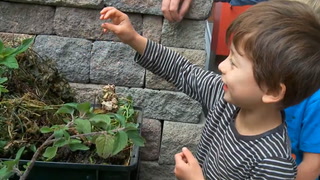
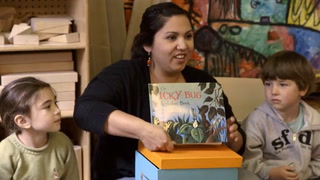
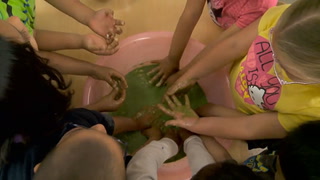
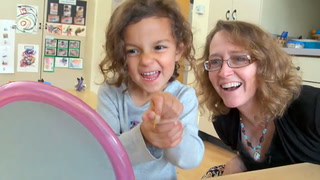
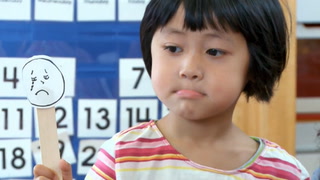








7 Comments
Scarlette Moore Mar 22, 2022 6:41pm
I enjoyed the way the children's eyes lit up when the teacher allowed them to voice their own opinion. The teacher alloy the children to guide the lesson and be a part of the results.
LaShawn Savage Feb 23, 2022 8:37pm
I enjoyed this Peas lesson. Ms. Jaboneta allowed herself become a student of her students as well as their teacher. She let them guide the class which gave them the ability to have confidence in what they do and what they think about their ability to learn things. This will help them embrace and further their self confidence throughout their Educational careers and their lifetime.
Gloria Mendoza May 5, 2017 12:46am
Vanessa Rivera Jun 21, 2014 8:59am
Aimee Noskowiak Feb 18, 2014 1:38pm